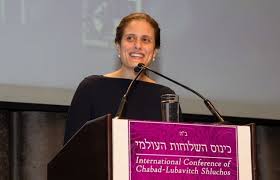Man in general, and bnai Yisrael in particular, have a difficult time waiting for things. Our Sages tell us that had Adam, in the Garden of Eden, held off and not eaten from the Tree of Knowledge until Shabbos, the seventh day, the ban on eating from the tree would have been rescinded, and Adam could have lived in Paradise forever.
Bnai Yisrael were supposed to wait until Moshe came down from Mount Sinai. They did wait, for 40 days according to their flawed count, but had they waited a few more hours, Moshe would have come down, and there would have been no Golden Calf.
And the great King Saul was to have waited in Gilgal for seven days, until Samuel came and brought offerings. But the Philistines were massing to fight against bnai Yisrael, so Saul brought the offering himself, only to have Samuel arrive a short time later and tell him that his kingdom would not endure because of this sin.
Waiting is an important part of managing our food intake. We have all been told that it takes 20 minutes for a person to feel full after he eats a meal. Yet there is this little (sometimes big) nudging voice that says, “I want more, and I want it now.” It is not driven by hunger but simply by a desire to eat. As readers of this series know, my biggest obstacle to keeping weight off and not gaining more is an insatiable desire to eat at night. I am getting somewhat better at refraining, but it is still very difficult. If I can hold out until the deadline (when I go to sleep), I am okay, and I can truthfully tell myself that I will be able to eat again when I awaken. So we’re not talking about waiting an eternity to eat, just a short time. Yet it is still very difficult.















